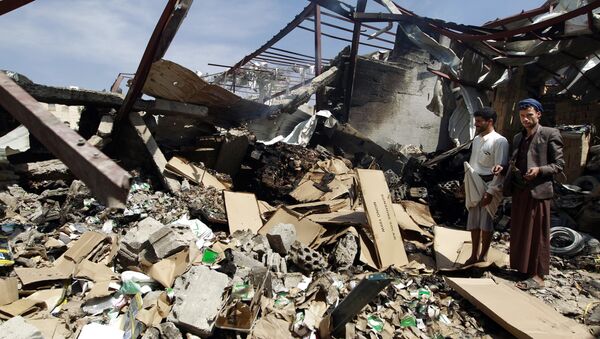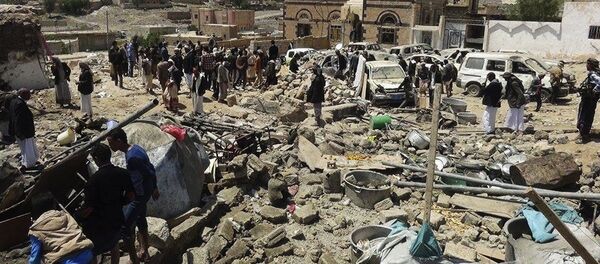However, despite mounting reports of civilians being killed and terrorist groups making inroads in the country, US officials have reassured sceptics that second-guessing American support for the Saudis could jeopardize the whole situation.
The Iran nuclear deal has already strained tensions between Saudi Arabia and the US, and Washington has no intention of continuing to distance itself with its most powerful ally in the region.
Meanwhile, what was supposed to be a brief Saudi-led campaign against the Iran-backed Houthi rebels who overturned Yemen's government has now entered its eighth month, and no end is in sight.
"The White House is increasingly frustrated with the Saudis, and they're trying to figure out how to handle it," a source in the US administration told Politico.
Face-to-face discussions appear to have had little effect, the expert said, but "the US is walking on such eggshells around Saudi when it comes to the public domain that they're not willing to ramp up their public pressure."
A State Department official, when asked whether the US was frustrated with the Saudis, said "We're always frustrated with everyone."
Civilian deaths in Yemen have become a tragic routine since hostilities began in late March. According to UN data, the majority were killed by Saudi-led airstrikes that are supposed to be targeting Houthi rebels and their allies. The US was quick to announce its "logistical" and "intelligence" support for the Saudi royal family after Yemeni leader Abd Rabbu Mansur Hadi fled Sanaa, the Yemeni capital, early this year.
The idea of Shiite Iran calling shots in neighboring Yemen was a red flag for Sunni Saudi Arabia, which together with Qatar and UAE hopes to thwart the rising power of Iran.
It is still likely that "the Saudis are in this for the long haul," said Fahad Nazer, a former policy analyst at the Saudi embassy in Washington: "They continue to be very resolute in this campaign."
Amnesty International has reported a very high probability that all sides in the Yemen conflict had perpetrated war crimes.
Due to Saudi resistance, the US and other governments recently refused to back an independent UN investigation of human rights abuse in Yemen; instead, they supported a resolution that would allow the Yemenis, headed by President Hadi, to oversee an inquiry with UN assistance.
Long before the March campaign in Yemen, the US had been slammed for its drone attacks on suspected Al Qaeda-affiliated terrorists in the country, which resulted in multiple civilian deaths. The fact that the US continues to assist Saudi Arabia in Yemen despite civilian deaths could further play into the hands of Islamic extremists, as the last months have witnessed the rise of Al Qaeda in the the country, according to analysts.





